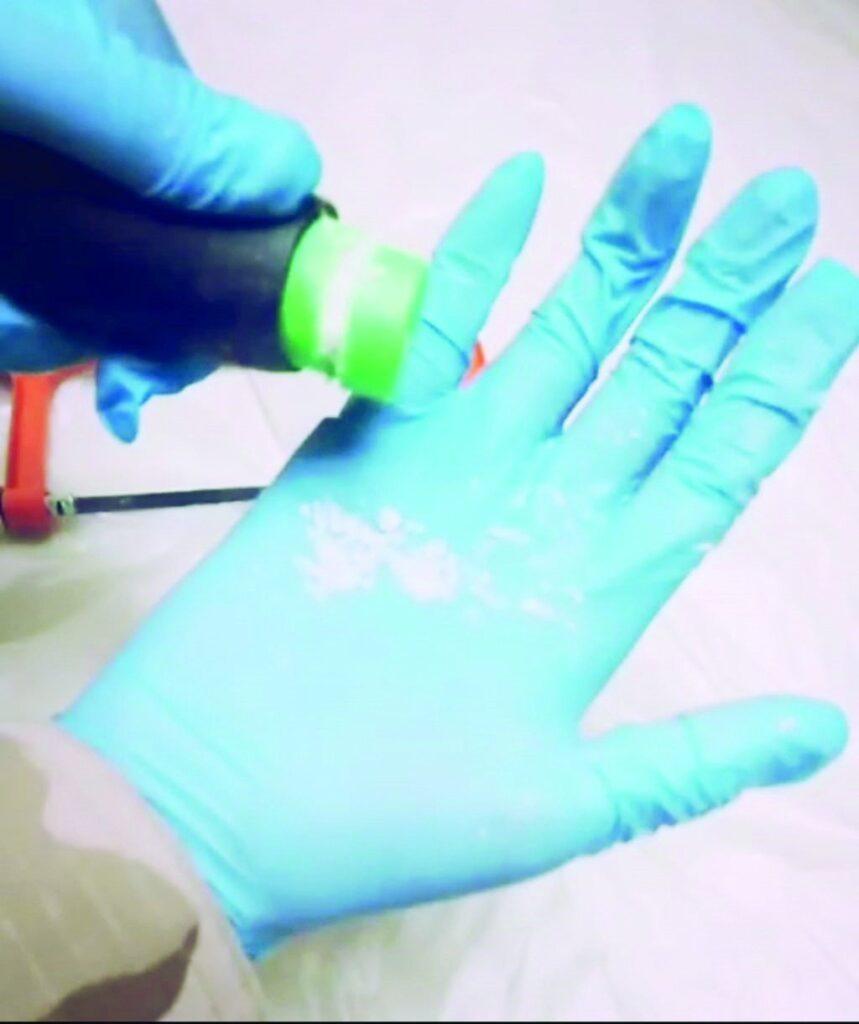Karachi:
The use of dark and social networks web platforms to acquire drugs using cryptocurrencies has reached alarming levels, raising new challenges for Pakistan’s anarcotic efforts. The authorities report a growing influx of grass and cocaine of Western and African countries, along with a worrying change of plant substances to synthetic drugs.
The law enforcement agencies are hardening controls on drug smuggling through messaging services and packages, rasks increasingly exploited by traffickers who seek to avoid conventional control points. During the past year, 33 drug trafficking groups have been dismantled, including a prominent Nigerian network.
The smuggers are also adopting increasingly sophisticated methods to hide narcotics, often hiding them in sports articles, surgical instruments and textile shipments, tactics seen not only as criminals but as attempts to damage Pakistan’s global reputation.
According to Brigadier Syed Imran Ali, the director of execution of the headquarters of the Narcotic Force (ANF) Pakistan has maintained its poppy free state since 2001, a milestone reaffirmed this year.
Speaking in an informative session in Karachi, Brigadier Ali said that Pakistan’s geographical location makes it a key transit route for international drug trafficking. He expressed concern about the growing use of the dark website and social media platforms to buy drugs through cryptocurrency, which makes it a growing threat. The traffickers, he added, are increasingly changing from substances based on plants to synthetic narcotics. The recent ANF operations have discovered significant entries of grass and cocaine from Western and African countries.
Brigadier Muhammad Umar Farooq, commander of the Regional Directorate Sindh, declared that a significant aspect of drug smuggling involves the messaging system and plots, both internationally and nationally. While important messaging offices are equipped with scanners and require documents such as national identity cards and complete addresses of senders and recipients, traffickers are exploiting lagoons in the management of plot packages at the neighborhood level. As a result, institutional measures are strengthening even more to counteract drug smuggling through mails and plots.
Of the population of 240 million Pakistan, approximately 170 million are between 18 and 31 years old. Protecting this vast juvenile demographic group from drug flagella is a national responsibility. While the Antarcotic Force (ANF) continues its efforts to curb drug smuggling, there is a pressing need for a generalized social consciousness. Addressing this challenge requires collective action in all sectors of society.
Providing details of the repressions carried out throughout 2024 and the current half -year period, which extends about a year and a half, ANF officials declared that joint operations with several individuals and institutions resulted in the seizure of 452 tons of drugs. From this, the ANF only recovered more than 244 tons, representing more than 58 percent of all anti -drug operations.
In airports throughout the country, 436 suspects were arrested and attempts to smuggled drugs through 373 plots were frustrated. Maritime operations led to the seizure of 19 containers. The efforts to smuggle drugs to the Gulf countries were also frustrated, which resulted in the arrest of 403 suspects and the convulsion of 5,783 kilograms of narcotics.
In collaboration with international organizations, 44 maritime operations were carried out against drug trafficking networks, which led to the dismantling of 33 groups, including a Nigerian union.
Attempts to slander Pakistan’s reputation through the smuggling of hidden drugs, surgical instruments and textile products have been discovered. It has been found that the nationals of Afghanistan and Nigeria are most frequently involved in these operations. Meanwhile, Pakistan occupies the fifth place among the countries most affected by climate change. In line with environmental concerns, the ANF incinerates drugs confiscated into safe facilities instead of burning them in open fields.
The growing use of drugs in educational institutions is alarming. The ANF has carried out multiple operations around these institutions, taking 1,420 kilograms of drugs. A total of 363 operations were carried out to stop the propagation of drugs, which led to the arrest of 421 suspects identified through intelligence as student suppliers.
Since 2005, rehabilitation efforts have helped 30,000 drug addicts return to normal life. The ANF is not only addressed to those involved in drug trafficking, but also actively pursues legal actions to guarantee their conviction. After the arrests, the ANF has achieved an impressive condemnation rate of 85 percent.




